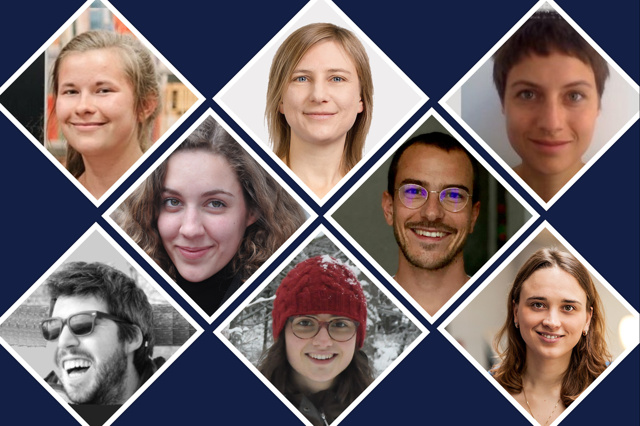As we look back on 2020 we see how Covid-19 has made it starkly clear to all of us that globally something is deeply, systemically wrong. As Arundhati Roy stated a portal has opened that demands we change our lives. Those of us cocooned at home working on zoomland, or those of us struggling with economic uncertainty and compromised health, have become even more aware of how important relations with others are, how fragile our environment is, and how well-being in place matters. The 8th International Degrowth Conference is offering the possibility to share with others how we can change our lives collectively. Boldly entitled ‘Caring Communities for Radical Change’, the Conference offers the space for people to come together in The Hague to talk through: what kind of caring communities can we build together? What do we mean by radical change? And how can we foster a sense of trust as we explore who is the ‘we’ who will create change? Degrowth is acting here as a metaphor for the need to change on many levels, not only the economic. In pointing to care, the importance of communities and the need to shape a vision of radical change, the Conference will be pushing participants to take very seriously the lessons of Covid-19: to reduce consumption; to live within our planetary boundaries; to put care not growth at the center of our daily lives; to value relations with human and more than human others; and to recognize the deep systemic wrongs to be addressed and changed. In order to tackle those vital concerns, the Conference will be building on many traditions – from anarchism to feminism, from spiritual beliefs to political movements, from ecological economics to critical agrarian studies. It will draw on experiences in The Netherlands, Europe and transnationally. Most of all, it will be an event that focuses on communication and connection. It will embrace ways of learning, working with artists and activists as well as scholars. Such combined skills will enable participants to acknowledge the deep emotions that impact us as we struggle with Covid-19, climate change, ecological crises, and the continuing systemic inequalities that mark and mar this world. But while knowing we face difficult times, the Conference is also held in the spirit of hope. The dialogues will be creative and exciting. They will be revealing. They will be about learning what and how we need to change. The Conference will help participants confront the messy, painful world we are in, but not alone, by working collaboratively, we will find ways to bring about radical change. How can just five days achieve all of this? Especially given the impact of Covid on all our lives? Previous degrowth events were confident of 1000s attending. In August 2021 we can hardly imagine even a few hundred people gathering together, without masks? No social distancing? We will have to deal with all the difficult issues of inclusivity – including new rules and policies on who can be vaccinated and who can travel. Long haul travel for many reasons will not be possible. These are to be the new realities which make holding celebratory, hopeful and inclusive degrowth events more complex. On the other hand, we are already working towards just such an event. The process of preparation for the 8th International Degrowth Conference is itself creating a caring community. There are nearly 60 people who are working in the Assembly (our organizational collective). They are working on-line, based in The Netherlands and beyond. In the discussions and collective planning, they (we) are envisioning and shaping the event. The Assembly is open to all who want to join and operates on principles of care, solidarity, transparency and consensus decision-making. On a personal note, I can attest that being an active member of the Assembly, particularly in these strange isolating times, is energizing and exciting. It shows how organizing events, degrowth style, holds out the promise of doing things otherwise that takes us far beyond traditional academic conferences. Last month I sat in my living room watching 32 other faces on my screen as we all confirmed the final text of the call for participation. As the light dimmed around me, we moved into break out groups and spoke about what our conference would look like, what would be exciting, why would people want to be involved. I forgot my solitude as I imagined all the possible dialogues, the artwork, the campaigns, the learning (and unlearning), the food we would share, the hugs (the hugs?) that would happen. Even on-line, alone in the gloom, I felt the surge of hope and possibility. In person or off-line, or in a mixture in between, I know these months of preparation will make sure in those 5 days in August in The Hague there will be care, community and practical steps towards radical change. Join us – by responding to the call for participation – by engaging in the on-line key conversations that will lead up to the August Conference – and become part of this vibrant, exciting, caring community.

Building on previous strategy debates on degrowth.info, Charles Stevenson argues for degrowthers moving beyond Erik Olin Wright's typology

Oliver Lewis argues that the degrowth movement must not shy away from engaging with its critics

The degrowth community has spent much time and effort making the case for why we need a degrowth transformation. Now it’s time to come together and pool the community’s knowledge on how to make such a social-ecological transformation happen. As an off-shoot of the Degrowth Vienna 2020 Conference, our book Degrowth & Strategy: how to bring about social-ecological transformation lays the groundwork for precisely this discussion. However, to bring this project to full fruition, we need your help.